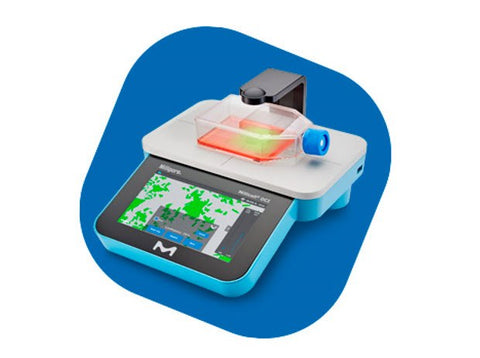Merck Launches Millicell DCI Digital Cell Imager for Fast, Accurate, and Objective Cell Monitoring

● Quickly and objectively assesses common cell culture parameters and growth trends for more consistent cell cultures ● Expands capabilities with off–device cloud storage and web-based app for data analysis, sorting, and archiving● Collects critical insights without risking sample contamination from manual cell culture handling
Merck has announced the launch of its new Millicell® DCI Digital Cell Imager, an instrument that helps improve cell culture lab productivity by assessing a broad range of parameters including confluency, morphology, and cell growth trends, providing faster and more accurate analysis results with reduced user bias.
Millicell® DCI has an intuitive, built-in touchpad display that enables more efficient execution of the repetitive daily techniques in the laboratory associated with cell passaging, screening or manufacturing of cell-based products.
Accessible data analysis, storage, and archiving
As the future of laboratory work models evolve, researchers will likely have reduced time at the bench. With the Millicell® Cloud software, an off-device subscription, analysis can be automated, and data can be made accessible from remote desktops or mobile devices - saving costs and supporting data redundancy for backup and protection by automatically sorting and storing data and images. Empowered with instant access to historical data, researchers can track cell culture trends, and create consistent cell cultures.
Reduced contamination risk
Capturing essential insights while limiting the potential for exposure to contaminants is key in studies involving cell culture. The Millicell® DCI Digital Cell Imager takes away the requirement for manual manipulation of the cell culture flask resulting in reduced contamination risk and improved flexibility for the user. It is possible to evaluate a wide variety of cell cultures including adherent cells and cell lines, spheroids, and organoids, as well as hemocytometer or in-vessel measurement.
